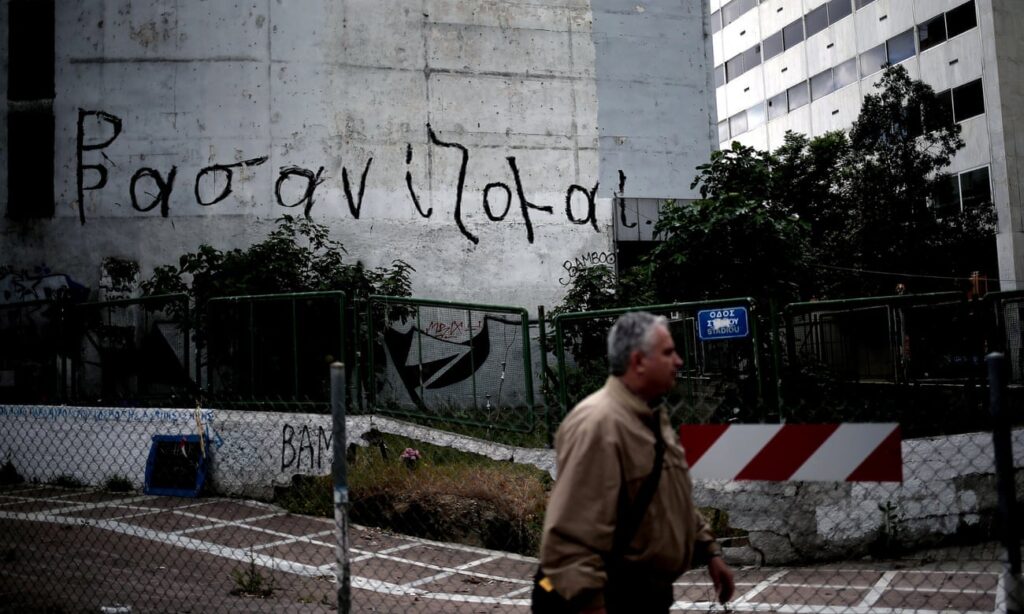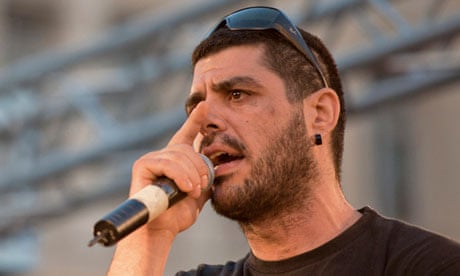Helena Smith has been The Guardian‘s Greece Correspondent for the last 30 years. In this time, she’s met resistance heroes, been quoted by former US President, Barack Obama, and covered the Golden Dawn era.
In a special interview with The Guardian to mark her 30 years of coverage, Smith left no question unanswered, discussing the highs and lows of her career, as well as the difficulties she’s faced reporting from Athens.
Making Greece her base:
On the question of how she came to be a correspondent in Greece in the first place, Smith says her history with the country began in her 20’s.
“All roads led to this part of the world fairly early on. My history with Greece began in my 20s, although I arrived here via Cyprus, where I spent some of my childhood,” Smith tells The Guardian.
“I initially trained as a cub reporter with the Associated Press, before working as a freelancer for various print media and the BBC. When communism collapsed and it was clear the Balkans were about to go up in flames, I took the decision to make Athens my base.”

The difficulties with reporting from Athens:
Smith goes on to say that she has had to cover a number of challenging Greek issues, and at one stage even received death threats during the Andreas Papandreou era.
“Every country has its challenges: writing about Greeks and Greece comes with its own set of perils. The Macedonian question, issues of identity, and ethnic and religious minorities are especially sensitive, as is the 1946-49 civil war and the tumultuous events that preceded it,” Smith explains.
“I received death threats during the Andreas Papandreou era, which prompted the British embassy to send a protection officer to “sweep” my then home.”
Career highlights:
For Smith, two of her biggest career highlights are her meeting with resistance hero, Manolis Glezos, and the moment Pope Francis waved in her direction when he visited Lesvos.
“Being denounced as a “dirty piece of rag” by Jean-Marie Le Pen’s Front National after swimming out to interview him on a floating deck off Corfu was unexpectedly flattering, closely followed by Pope Francis on Lesvos waving in my direction and the hundreds around me as he stepped on to the tarmac at Mytilini airport,” Smith says.

The Greek correspondent goes on to say that Barack Obama’s reference to a piece she had written on his last international trip as US President, was also “seriously uplifting.”
“It was his final big speech on foreign soil and he chose to repeat the words of Melia Eleftheriadi, an Athens prefecture employee I’d interviewed at the height of the refugee crisis, saying it was women like her who gave him cause for hope,” Smith details.
Reporting on the debt crisis and the Golden Dawn trials:
In her 30 years of reporting, Smith has also covered two important events in the history of Greece – the debt crisis and the Golden Dawn era.
She recalls how the debt crisis began in late 2009 and “no one knew what was around the next bend… with potentially explosive effects for Europe.”
In 2015, she says, “the rollercoaster intensified” and “it was hard to recognise” Greece.
“It had become one big wound. I had friends who were badly affected and that was heartbreaking,” Smith says.

“A decade after the 2004 Athens Olympics, people in middle-class districts beneath the Acropolis were struggling to feed themselves as hunger and malnutrition emerged in tandem with joblessness and homelessness.
“The crisis undoubtedly exposed the flaws of the state. But it also confounded expectations. Although struck by loss in myriad ways, Greeks exhibited admirable fortitude and became a poster child of the resistance and resilience of our age.”
On the Golden Dawn era, Smith recalls the moment when it felt like public sentiment towards the group was shifting.

“The murder of the popular anti-fascist musician Pavlos Fyssas in September 2013 was a turning point. It took the assassination of a Greek by a professed Golden Dawn operative to galvanise public opinion and re-energise the anti-fascist movement,” she says.
“The era as we have known it is over. Golden Dawn fell victim to its own proclivity for violence. But it will be harder to stamp out the ideas that fuelled its meteoric rise.
“Far-right nationalists will want to regroup and may well be boosted if the pandemic’s corrosive effects are overly felt and migrants and refugees begin landing en masse on Greek shores again.”
A stark warning from a correspondent who has clearly seen and reported on some of the more striking issues in Greece.
